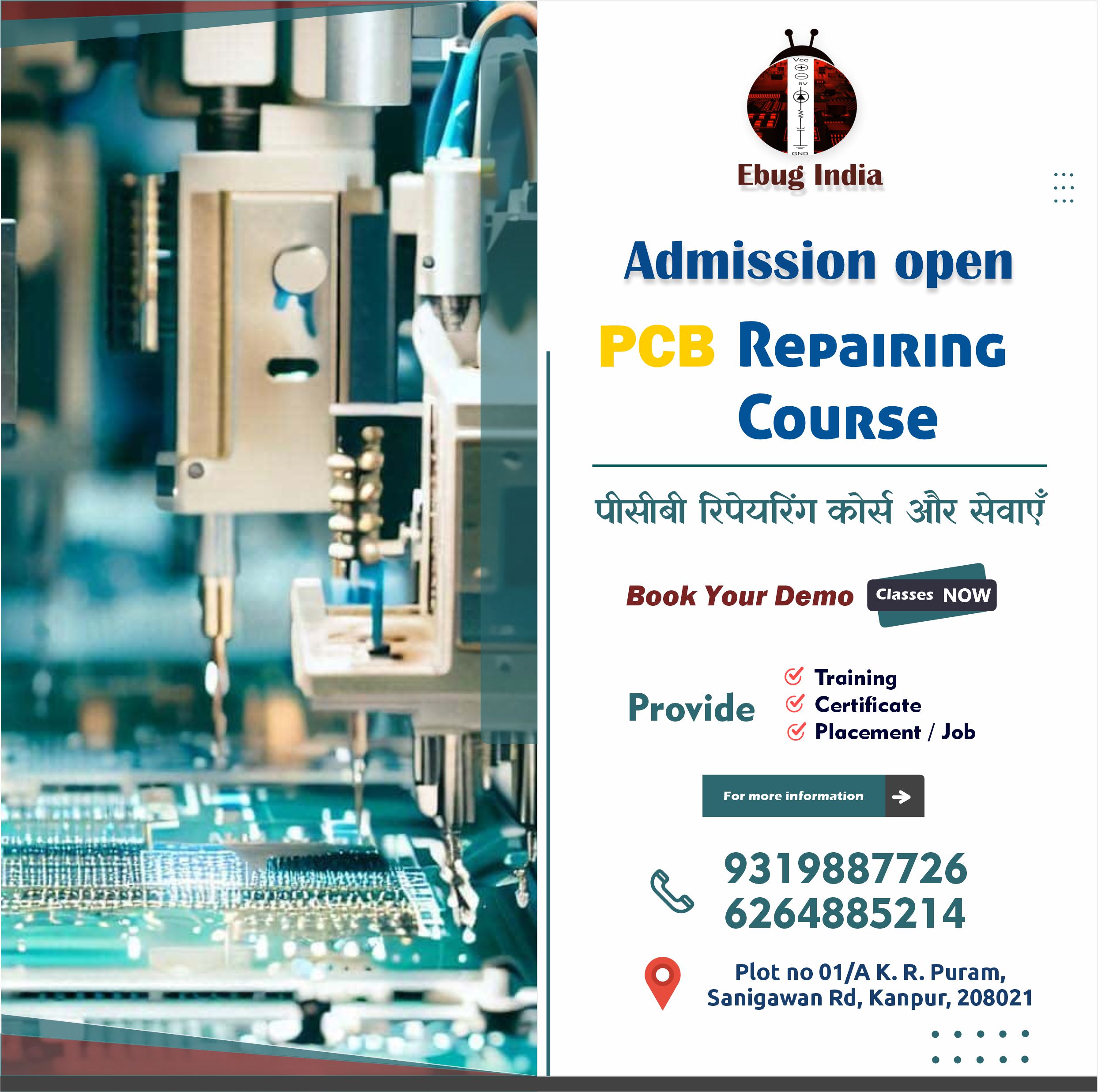PCB Repair : Essential Skills for Technicians
Printed Circuit Boards (PCBs) are the backbone of modern electronics, serving as the foundation for almost every electronic device, from smartphones and laptops to industrial machinery and medical equipment. As these devices become more complex, the demand for skilled technicians capable of repairing PCBs has skyrocketed. Whether you're a hobbyist, an aspiring technician, or an experienced professional, mastering PCB repair is a valuable skill set. This blog explores the essentials of a PCB repairing course and why it’s a crucial step in your electronics career.
Understanding PCBs
Before delving into the intricacies of PCB repair, it's essential to understand what a PCB is and how it functions. A PCB mechanically supports and electrically connects electronic components using conductive tracks, pads, and other features etched from copper sheets laminated onto a non-conductive substrate. Components such as resistors, capacitors, and integrated circuits are soldered onto the PCB, creating a complete and functional electronic circuit.
Why PCB Repair Skills are Vital
- Cost Efficiency: Repairing a PCB is often more cost-effective than replacing the entire unit, especially in high-value equipment.
- Sustainability: Repairing and reusing electronics contributes to environmental sustainability by reducing e-waste.
- Career Opportunities: Skilled PCB repair technicians are in high demand across various industries, offering job security and potential for growth.
Key Components of a PCB Repairing Course
- Basic Electronics: Understanding the fundamentals of electronics, including voltage, current, resistance, and how different components work, is crucial.
- Soldering Techniques: Learning proper soldering and desoldering techniques is essential for replacing faulty components without damaging the PCB.
- Diagnostic Tools: Proficiency in using diagnostic tools such as multimeters, oscilloscopes, and logic analyzers to identify issues in the circuitry.
- Component Identification: Ability to identify and test various components, such as resistors, capacitors, diodes, and transistors, to ensure they are functioning correctly.
- Circuit Tracing: Learning to trace circuits and understand schematics to pinpoint where problems may lie within the PCB.
- Repair and Rework: Techniques for repairing damaged traces, replacing components, and reworking solder joints to restore the PCB to its original functionality.
- Safety Practices: Emphasizing the importance of safety, including handling electronic components, using tools properly, and avoiding static discharge.
Hands-On Experience
A significant portion of any effective PCB repairing course involves hands-on training. Working with real PCBs, learning to diagnose and fix actual faults, and practicing soldering techniques are invaluable experiences. This practical approach ensures that students are well-prepared to handle real-world scenarios and challenges.
Advanced Topics
For those looking to further specialize, advanced courses may cover topics such as surface-mount technology (SMT) repair, ball grid array (BGA) rework, and repairing multi-layer PCBs. These advanced skills are particularly useful in industries where precision and expertise are paramount.
Certification and Career Path
Completing a PCB repairing course often culminates in certification, which can significantly enhance your credibility and employability. Certified technicians are recognized for their expertise and are more likely to secure positions in competitive job markets.
Career paths for PCB repair technicians are diverse. Opportunities exist in consumer electronics, telecommunications, aerospace, medical devices, and more. Whether you choose to work for a company or start your own repair business, the skills acquired in a PCB repairing course open numerous doors.
Conclusion
Mastering PCB repair is a valuable and rewarding skill set in today's electronics-driven world. A comprehensive PCB repairing course provides the foundational knowledge, hands-on experience, and advanced techniques needed to excel in this field. Whether you're looking to enhance your career prospects or simply enjoy the challenge of fixing intricate electronic devices, learning to repair PCBs is a worthwhile investment in your future.


Comments (0)